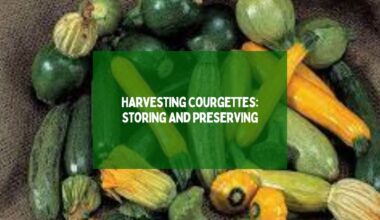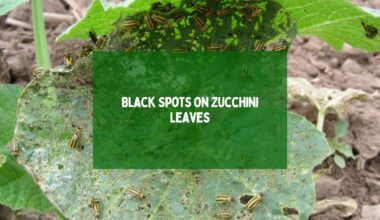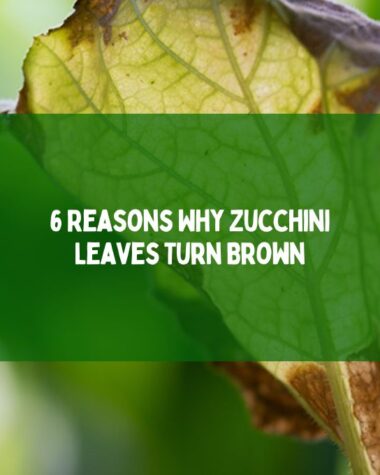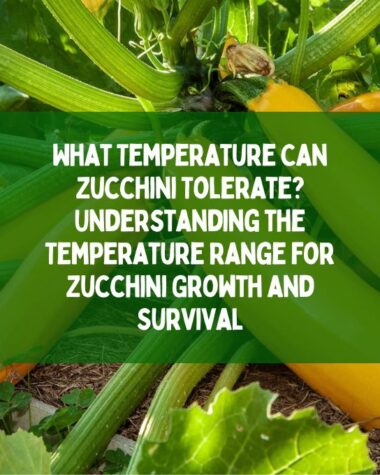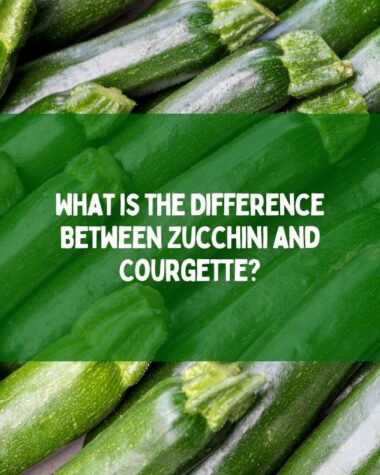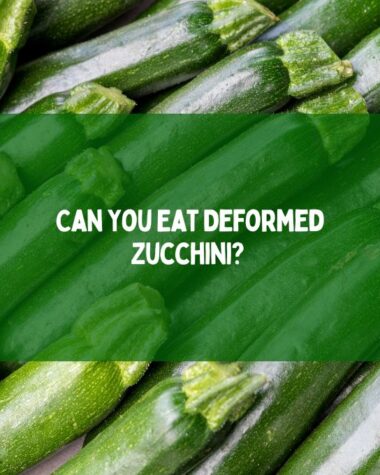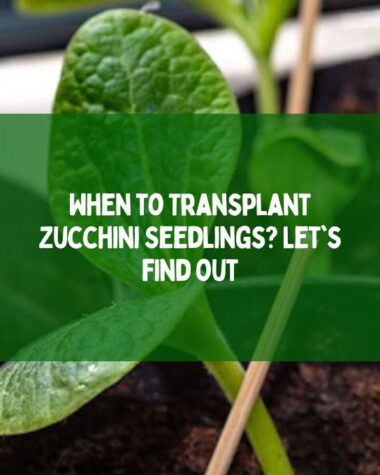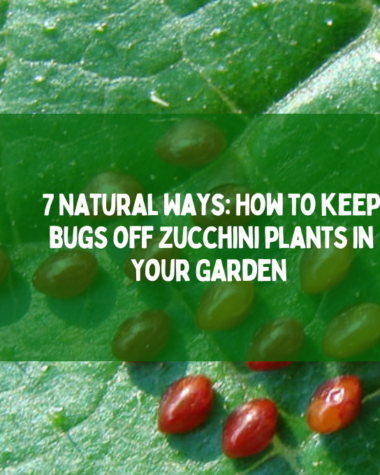Zucchini, a popular summer squash known for its versatility and mild flavor, is a staple in many culinary creations. However, there have been instances where zucchini has been reported to be poisonous, leading to concerns and questions about its safety.
This article will delve into the factors that can cause some zucchini to become toxic, shedding light on the possible reasons behind this phenomenon.
By understanding the causes, we can take the necessary precautions to ensure the safe and delicious consumption of zucchini.
Causes Of Making Zucchini Poisonous

Poisonous zucchini can result from various factors that affect the plant’s growth and development. Environmental conditions, plant diseases, and improper cultivation practices can all contribute to the toxicity of zucchini.
Soil contamination with heavy metals or chemicals, air pollution, and bacterial or fungal infections are among the key causes of poisonous zucchini.
Additionally, overuse of chemical fertilizers, improper watering techniques, and inadequate storage conditions can also produce toxic compounds in zucchini.
Understanding these causes is crucial to identifying and preventing the consumption of poisonous zucchini and ensuring the safety and enjoyment of this popular summer squash.
Read on to learn more about this article.
Related Reading
- Can You Eat Deformed Zucchini?
- How To Pollinate Zucchini Plants?
- A Complete Growing Guide for Zucchini Plant Care
- What is Zucchini Summer Squash and How to Plant Zucchini from Seeds?
Environmental Factors That Makes Zucchini Poisonous
Here are some environmental factors that makes zucchini poisonous;
Soil Contamination
Zucchini plants absorb nutrients from the soil, and if the soil is contaminated with heavy metals or chemicals, these substances can accumulate in the fruit.
Industrial pollution, pesticide use, or improper waste disposal near the growing area can all contribute to soil contamination. Elevated levels of toxins in the soil can lead to the production of poisonous zucchini.
Air Pollution
Air pollution, particularly in urban areas or near industrial sites, can have an impact on the quality of zucchini. The leaves of zucchini plants can take up toxic gases and pollutants in the air, which will then change the fruit’s composition.
When zucchini absorbs harmful substances from the air, it may become poisonous and unfit for consumption.
Plant Diseases and Pests On Zucchini

The plant diseases and pests include;
Bacterial Infections
Bacterial infections, such as bacterial wilt or soft rot, can cause zucchini plants to produce toxic fruits.
Bacteria can invade the plant’s vascular system, disrupting the flow of nutrients and water. As a result, the zucchini may exhibit symptoms of wilting, discoloration, or rotting, indicating the presence of harmful bacteria.
Fungal Infestations
Fungal diseases, including powdery mildew and gray mold, can also contribute to the production of toxic zucchini. These diseases thrive in humid environments and can affect the leaves, stems, and fruits of the plant.
Fungal infections can alter the chemical composition of zucchini, potentially leading to the accumulation of harmful compounds.
Viral Attacks
Viral infections can weaken zucchini plants and make them more susceptible to toxin production.
Viruses, transmitted by insects or contaminated tools, can cause stunted growth, leaf distortion, and yellowing. These symptoms may indicate the presence of viruses that can compromise the quality and safety of zucchini.
Improper Cultivation Practices On Zucchini

Overuse of Chemical Fertilizers
Excessive use of chemical fertilizers can have detrimental effects on zucchini plants and their fruits.
The overapplication of synthetic fertilizers can lead to an imbalance of nutrients, disrupting the plant’s natural growth processes. This imbalance can result in the production of toxic substances in zucchini.
Improper Watering
Inconsistent or inadequate watering practices can stress zucchini plants and compromise their health. Insufficient water supplies can lead to nutrient deficiencies and hinder the plant’s ability to flush out toxins.
On the other hand, overwatering can promote the growth of fungi and bacteria, increasing the likelihood of toxic zucchini.
Improper Storage
Improper storage conditions can also contribute to zucchini toxicity. When zucchini is not stored in cool and dry environments, it becomes susceptible to mold growth and spoilage.
Moldy zucchini can produce mycotoxins, which are toxic compounds that can cause illness when ingested.
Conclusion
While zucchini is generally safe to consume, there are instances where it can become poisonous due to various factors. Soil contamination, air pollution, plant diseases, pests, and improper cultivation practices can all contribute to the production of toxic zucchini.
It is essential to pay attention to signs of toxicity and take preventive measures to ensure the safety of the zucchini we consume.
By understanding the causes and implementing best practices in zucchini cultivation and storage, we can enjoy this versatile vegetable without any health concerns.
Related Reading
- Secrets to Successful Eggplant Cultivation: What is the Secret for Growing Eggplant?
- Cucumber Face Masks: Your Ticket to Fresh and Revitalized Skin
- Unleashing Joy: Exploring the Delightful World of Jolly Pumpkins
- Difference Between Red Carrots and Orange Carrots
Frequently Asked Questions
Can all parts of a poisonous zucchini be toxic?
Yes, the entire zucchini plant, including the fruit, leaves, and stems, can contain toxins if certain conditions are present.
How can I tell if a zucchini is poisonous?
Poisonous zucchinis may exhibit signs such as discoloration, unusual texture, foul odor, or mold growth. If in doubt, it is best to err on the side of caution and discard the zucchini.
Are there any safe practices to prevent zucchini toxicity?
To minimize the risk of poisonous zucchini, it is advisable to grow zucchini in healthy soil, avoid chemical overuse, practice proper watering techniques, and store zucchini in optimal conditions.
Can cooking eliminate the toxins in zucchini?
Cooking methods such as boiling or baking can reduce the concentration of certain toxins in zucchini. However, it may not eliminate all types of toxins, so it is still important to start with safe and healthy zucchini.
Are there specific zucchini varieties that are more prone to toxicity?
While any zucchini plant can potentially become toxic, certain varieties may be more susceptible to diseases or environmental factors that contribute to toxicity. Consulting with local gardening experts can help you choose more resistant varieties.
What are the potential health risks of consuming poisonous zucchini?
Consuming toxic zucchini can lead to symptoms such as nausea, vomiting, diarrhea, abdominal pain, or even more severe complications, depending on the specific toxins present.
